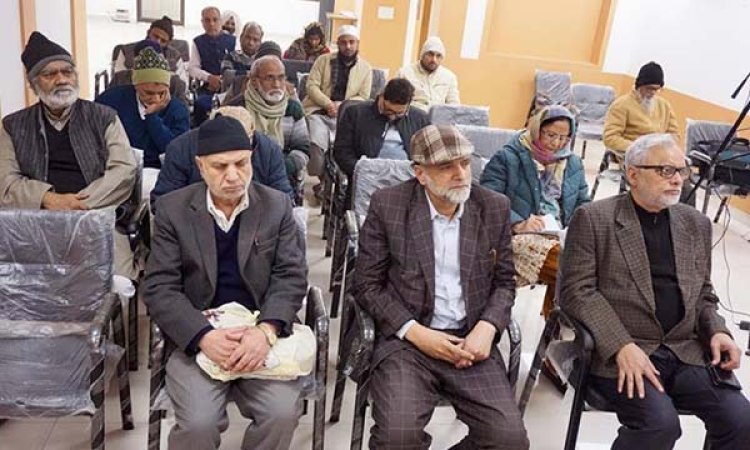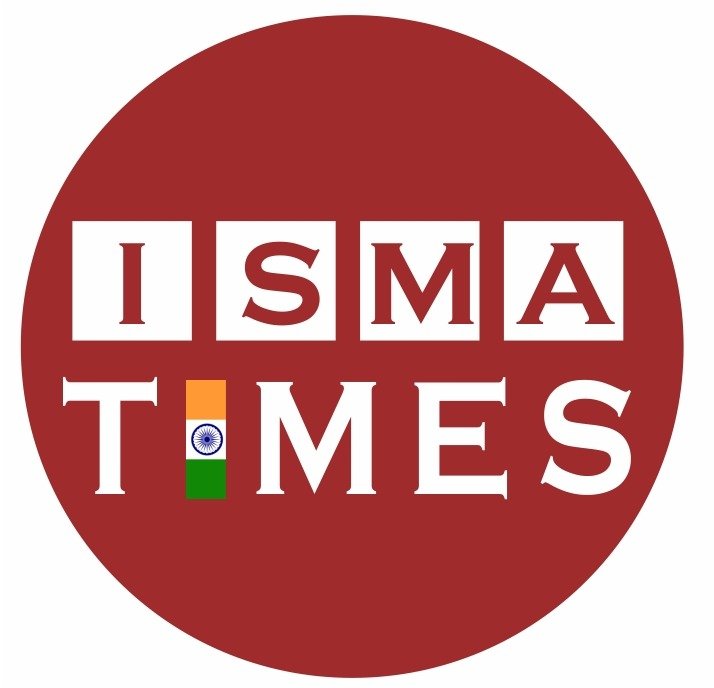IOS Lecture on Democracy is not merely Rule of Law
Delivering the lecture, author and human rights activist, Mr. Vidya Bhushan Rawat said that today rule of law had many connotations due to its application. For instance, U.S. attack on Iraq and Afghanistan was termed as the rule of law.

IOS Lecture on “Democracy is not merely Rule of Law but Mutual Respect among Communities and Individuals”
New Delhi: A lecture on “Democracy is not merely rule of law but mutual respect among communities and individuals” was organised by the Institute of Objective Studies on January 21, 2023. Presided over by Prof. Arshi Khan from the department of political science, Aligarh Muslim University, the lecture began with the recitation of a verse from the Qur’an by Hafiz Athar Husain Nadwi.
Delivering the lecture, author and human rights activist, Mr. Vidya Bhushan Rawat said that today rule of law had many connotations due to its application. For instance, U.S. attack on Iraq and Afghanistan was termed as the rule of law. Similarly, about 4500 families were uprooted in Haldwani town of Uttarakhand in order to vacate the land owned by the railways. This action was also defended in the name of the rule of law. Thus, there was a big gap between rule and the practice. The rule of law was best practiced in Britain where the prime minister was chargesheeted for not following traffic rules. He commented that whatever the Baba of Nagpur was screaming loudly was also a rule of law. He stated that the West termed the Russian attack on Ukraine as anti-rule of law as it should have some international standard. It defined the existing practice of the rule of law. He opined that the rule of law had certain positive aspects too. Off late, the concept of democracy had undergone change with majoritarianism occupying the centre-stage. This was due to the domination of minorities over the political discourse in the last 75 years. This led to every community demanding share in the power structure. But, Muslims and adivasis did not become so vociferous, he noted.

He underlined the importance of autonomous institutions in a democracy. Referring to merit, he said that it had always been subjective. Merit always dominated to control the system. He complained that universities and colleges were not organising lectures and seminars on such subjects with the result that debates and discussions were not held. When people demanded their share in power structure, then they would be branded as ‘Netas’. He observed that the narrative was built according to the governance. Rules must be based on structural standards as was done in the case of United Nations and its specialised agencies. He argued that it was the duty of the State to calm down people when they were agitated. Crisis might brew of socio-economic equality was not ensured. Referring to the latest law, he said that now, one would be guilty if did not prove that he was not guilty. These days, the state said ‘no’ to the order passed by a court to release a convict because he was a ‘threat’ to peace. He insisted that rules were framed taking into account human rights, cultural diversity and cultural togetherness. India was its best example where the constitution framing was a big achievement. As against this, Pakistan took ten years to frame its Constitution. Pakistan too tried to make itself a homogeneous country, but failed, he said.
Mr. Rawat held that Indians were fortunate to have inherited a rich legacy and cultural diversity which was reflected in the Constitution. In this connection, he mentioned the composition of the Azad Hind Fauj led by Netaji Subhash Chandra Bose which was composed of all the communities. As the president of the Congress session in 1938, Netaji spoke of cultural affinity in the country. Indians should celebrate shared legacy and the legacy of the freedom movement. Sometimes, people did not understand their legacy. But the fact was that today, all the things were linked to each other. He asked for celebrating people, literature, history, culture, philosophy etc. He firmly believed that the legacy of freedom movement was very rich and could not be done away with. He said that legacies of kings should not be celebrated. Instead, legacies of the popular movements, festivals, respect to each other, Gandhi, Nehru, Maulana Azad, Hasrat Mohani, Netaji Subhash Chandra Bose and joint syncretic culture should be celebrated. At a time when prejudices were being sought to be played up by certain forces, efforts should be made to discourage them. Laws were being twisted to suit a certain ideology. He urged the people to strengthen the Constitution. He spoke against the governments’ stand of the collegium system to appoint judges of the Supreme Court.
In his presidential remarks, Prof. Arshi Khan, summed up the Mr. Rawat’s lecture and observed that judiciary had the power of judicial review of the Constitution and the laws by the government. It examined if a law passed by the government was ultra-vires of the Constitution., it could then strike down such a law. In this respect, the U.S. judiciary was more powerful than the Indian Supreme Court. But, the judiciary in the United Kingdom was less powerful than the Indian apex court. Holding that the Constitution was supreme in the Indian system of governance, he said that it was a book to guide all the three organs of the government. Besides, it was the guardian of the rights of the citizens. The Constitution also laid down the principle of the separation of power that put under check the encroachment of one organ on powers of the other. Judiciary was the ultimate protection of individual rights whenever they were under the threat, he concluded.
At the end, assistant secretary general of the IOS, Prof. Haseena Hashia proposed a vote of thanks to the attendees.

















